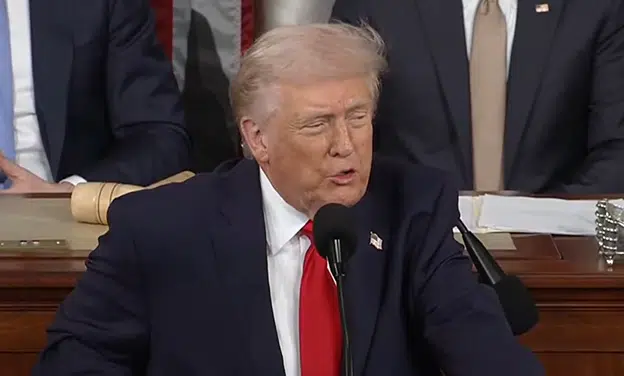By Bill Wilson –
Right now, the world is lost in a sea of black swans — any of which, if they unfurl their wings and fly, could potentially derail the global economic recovery and lead to massive government defaults on sovereign debt.
Bloomberg News’ William Pesek points to one of these black swans, that being the prospect that Japan, overwhelmed by the earthquake-tsunami-nuclear disaster response, will dump a large portion of its $886 billion of U.S. treasuries to help pay for the recovery.
The problem is pretty clear: Insurance companies in Japan have massive payouts to make for the earthquake to their policy holders. If they cannot raise more capital, the recovery efforts could put considerable strain on those companies. Moreover, the Japanese government provides most of the earthquake insurance in the nation, but it caps total payouts at $60 billion, as reported by MSNBC’s John Schoen.
That may be help the insurance companies and the government’s insurance funds stay solvent, but it poses a bigger difficulty. Estimates put the cost of recovery at about $180 billion or more. That means that insurance alone is not going to cover the costs. So, Japan needs to get the money from somewhere, leading writers like Pesek to speculate that perhaps Japan will need to dump its U.S. treasuries holdings.
There are some other options. They could also use the threat of dumping the treasuries as a way of coercing the U.S. into paying for rebuilding Japan. Or, they could default on portions of their own domestically-held debt. Or go even deeper into debt — although Japan has already accumulated public debt equivalent to over 200 percent of the nation’s economy.
Of those, getting the U.S. to help pay for the effort—since the Japanese do hold such a significant portion of U.S. debt—seems the most likely. Unless, of course, another U.S. creditor like China begins dumping their bonds first in anticipation of Japan dumping theirs, thus forcing Japan (and others) to dump theirs.
But, stepping back, even this is but one of many potential black swans that could lead to very bad outcomes.
For example, Federal Reserve Chairman Ben Bernanke has indicated that QE2, wherein the Fed is purchasing U.S. treasuries, will be winding down in June. The question is, when the Fed pulls back, who will buy all of the new debt the federal government is creating every year? Japan?
Consider the quantitative easing programs of the past couple of years. Pimco reports that in 2009, 80 percent of treasuries were purchased by the Federal Reserve, and in 2010, it had to buy 70 percent. Will there suddenly be a tremendous appetite for treasuries when the Fed withdraws when the U.S. debt is already pushing 100 percent of the Gross Domestic Product?
Another black swan, as always, are Mideast tensions. What will come of the Tunisian and Egyptian revolutions spreading throughout the region? What if hostilities break out between Saudi Arabia and Iran? Who would China back? The current unrest in that region obviously has tremendous implications for global energy supplies, which affects both China and Europe tremendously, which are both net energy importers. Further supply disruptions, coupled with easy monetary policies in the U.S., could send oil prices to the moon again.
And then there’s the European sovereign debt crisis itself. There, German and French financial institutions own most of the foreign-held debt of Portugal, Ireland, Greece, and Spain. And they are unwilling to take any haircut via debt restructuring for these troubled sovereigns. But why?
Probably because they cannot afford to. Obviously, when the financial crisis struck in 2008, financial institutions could not afford the restructuring necessary with the losses posed by the mortgage-backed securities and deriviatives — not without major government assistance. Those assets had been leveraged for borrowing and for investments.
It stands to reason they have done the same thing with government debt securities. Which is most likely why states like Ireland, Iceland, Greece, or others defaulting on portions of their debt poses such a threat to them. It could force them into bankruptcy.
Thus far, Ireland, since electing Prime Minister Enda Kenny recently, has attempted to negotiate a lower interest rate with the European Union for the €67.5 billion bailout loan it received. But Germany and France demanded that Ireland raise its lowest-in-Europe corporate tax rate of 12.5 percent.
Kenny refused, a move that has elevated him to the position of a national hero. The truth is, he holds some cards that could be played — namely, the threat of a sovereign default. He can rightly argue that his party never supported the bank bailout in Ireland to begin with, and that the 6 percent rate on the EU loan is confiscatory. So, what if Ireland uses that leverage to attempt to get a lower rate?
Moreover, what if Germany and France refused and Ireland defaulted? That would likely send ripples throughout government debt markets and threaten the ability of governments to borrow money.
It would also hurt the U.S. in that regard. Any one of these pressure points appears increasingly likely to blow up, and they could make it much harder for the U.S. to borrow over $2 trillion every year to deficit-spend and refinance the existing $14.1 trillion debt.
Scratch the surface and even the most-avowed, dedicated Washington, D.C. establishmentarians do not think the U.S. — and other troubled sovereigns throughout the world — are on any sort of tenable trajectory.
Meanwhile, in the U.S., Barack Obama is busy taking his kids to Brazil for vacation and obsessed with March Madness brackets.
At one of the nation’s most critical moments, we need a strong leader. But instead we have a figure who appears increasingly unsuited to the task at hand, which is reining in an unsustainable government spending binge.
Whoever runs against Obama in 2012, he or she needs to articulate a very clear message of how to deal with the world as it is, not as central planners in Washington wish it were. We need to stop applying pressure to these pressure points and reduce the pressure. That means the U.S. needs to lead the way with some form of debt restructuring, fiscal austerity, and a return to hard money.
The alternative to debt repayment — even partial repayment via debt restructuring — appears to be to do nothing. And risk a castrophic default later that includes the collapse of whole currencies and governments, the destabilization of entire regions, and the likely tyrannies that will rise to fill the power void. Then, no amount of bread and circuses will help.
Bill Wilson is the President of Americans for Limited Government.







